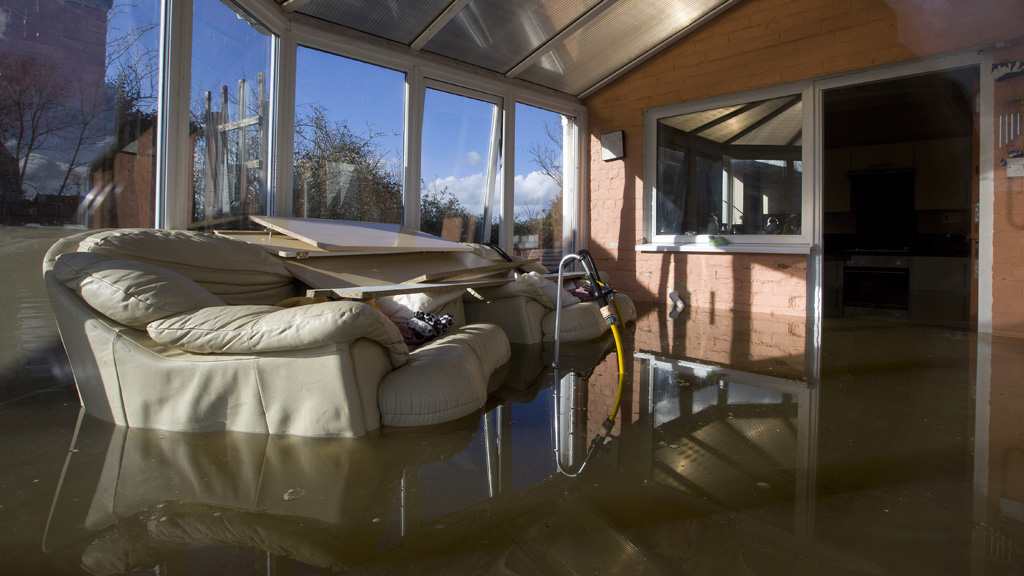Warning over bacteria in dirty flood water
Human sewage and animal waste could see flood-stricken communities fall prey to bugs like salmonella and the norovirus vomiting bug, officials have warned.

Dr Ben Neuman, microbiologist from the University of Reading, tested water in and around a property in the Somerset village Moorland last week and found much higher levels of bacteria than would normally be expected.
He said: “We found lots of things like E.coli and other bacteria. It was a high bacterial count – 100,000 E.coli per 100 millilitres, with our drinking water we would expect less than one E.coli per 100 millilitres.”
He said that this level of bacteria is “dirtier than the Thames” but not as bad as normal sewage, adding: “It’s the equivalent of taking a couple of teaspoons of horse manure and dissolving them in one of those office water coolers.”
Human sewage could spread the winter vomiting bug norovirus or hepatitis A, he said, adding: “But you actually have to pick them up and put them in your mouth.
“Walking around in it is no real hardship, unless you have gaping open wounds or something. It is more dirty than dangerous if you take the right precautions.”
Public Health England has warned people in flood-hit areas to take precautions to avoid contact with flood water if possible and wash their hands regularly.
.jpg)
Professor Virginia Murray said: “What we have done is to give advice to local people who are at risk or who are flooded about minimising any health risks.
“That really includes avoiding contact with flood water, which is really difficult, people have probably got to put their wellies on and walk through it, but it’s really important to avoid contact with flood water wherever you can.
“If you do, then wash your hands. The best way is with warm soapy water, if you’ve only got cold then wash them with cold and if you haven’t got that then there are sanitising gels or wipes.
“Any food preparation areas must be washed too. The most important thing is not to eat any food or drink that has touched flood water.
“If people follow this public health advice, from past experience from previous floods, we have not had significant increased rates of gastrointestinal illness.”
Andrew McKenzie, hydrogeologist from the British Geological Survey, said that flooding could cause issues with sewage works which may lead to some people in isolated communities facing living without toilet facilities.
“There are problems when you have very high ground water levels and sometimes that can make the operational sewers problematic,” he said.
He added: “If you have a sewer system which expects the water table to be underneath the sewer then obviously what you put into the sewer is going to flow down into that sewer and that’s great. If the water table rises up and it comes over the top of the sewers then it effectively stops the water draining away.
“Then you have got two problems, one is that sewage water mixes with the flood water and that makes things unpleasant and that is always a problem with flooding.
“The second issue is that you can’t actually use toilets and drains within the house because the water won’t actually flow away because the ground water is blocking it.”